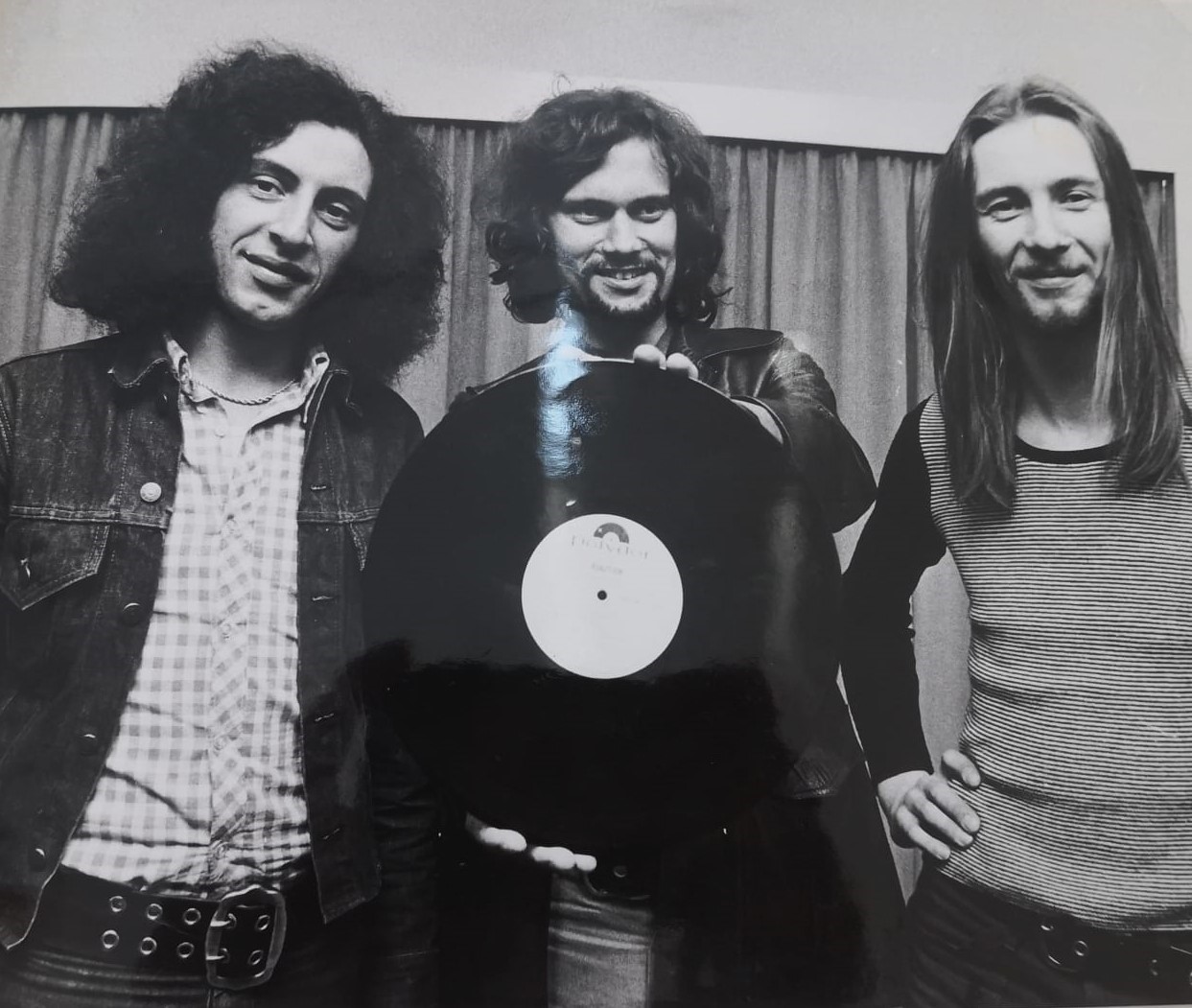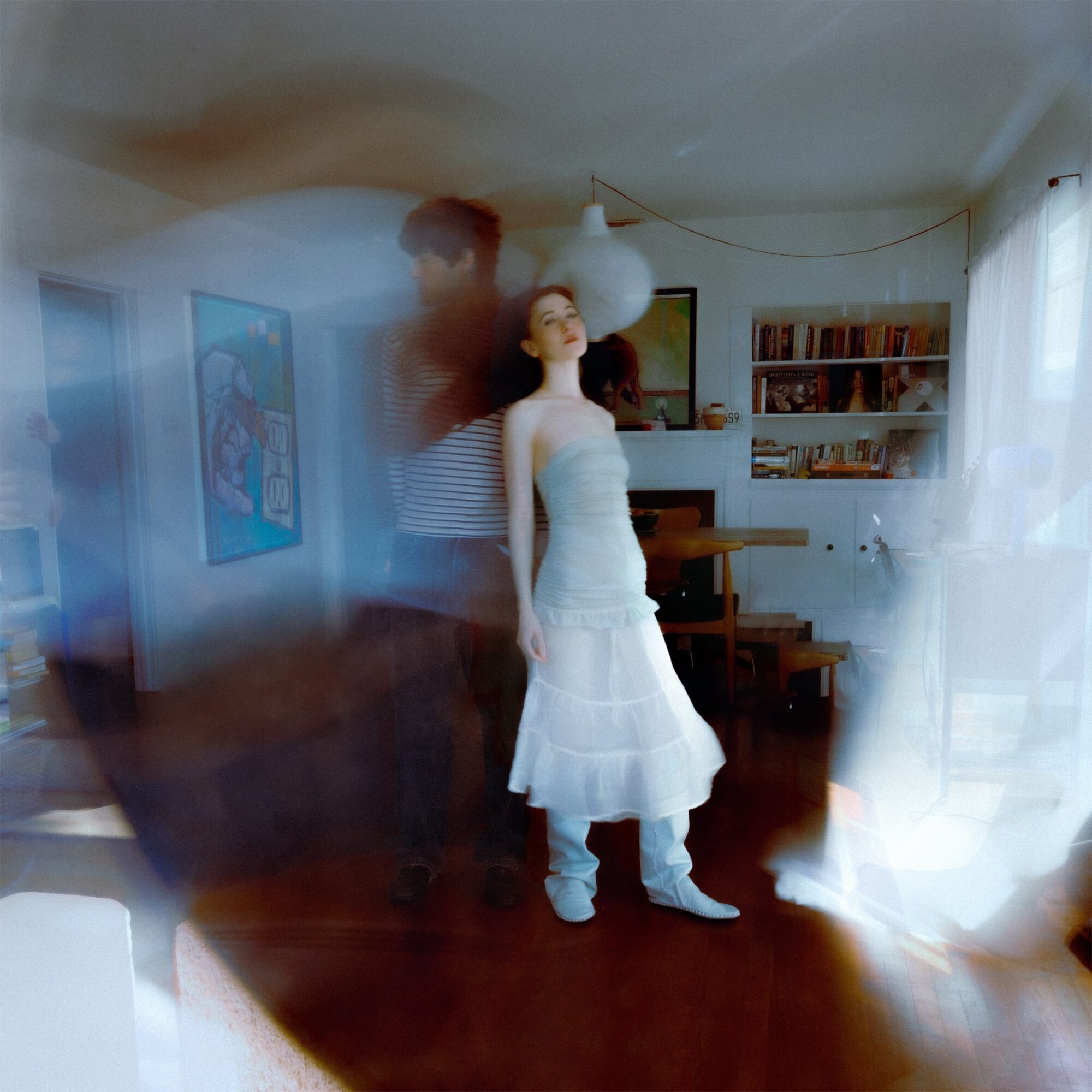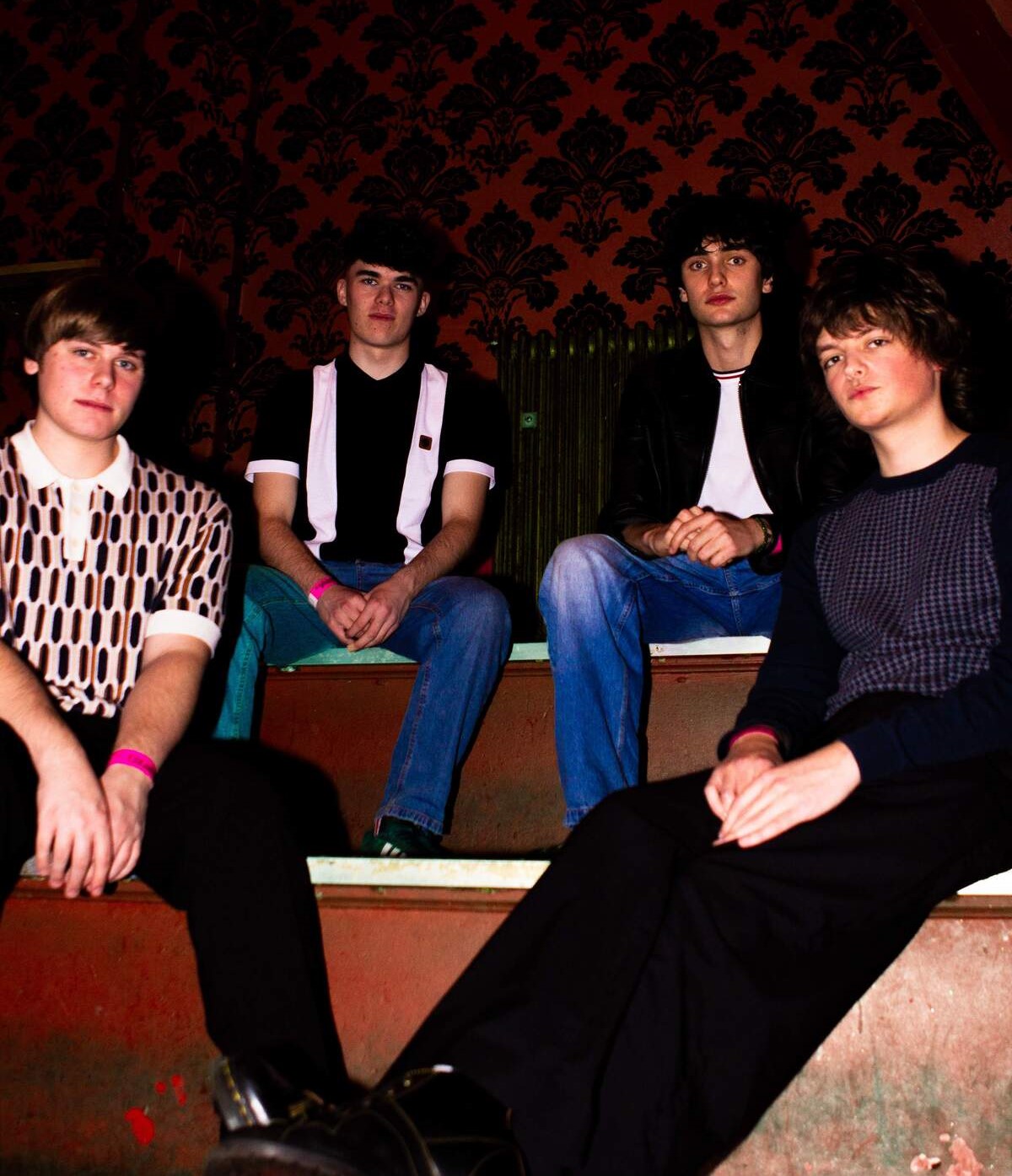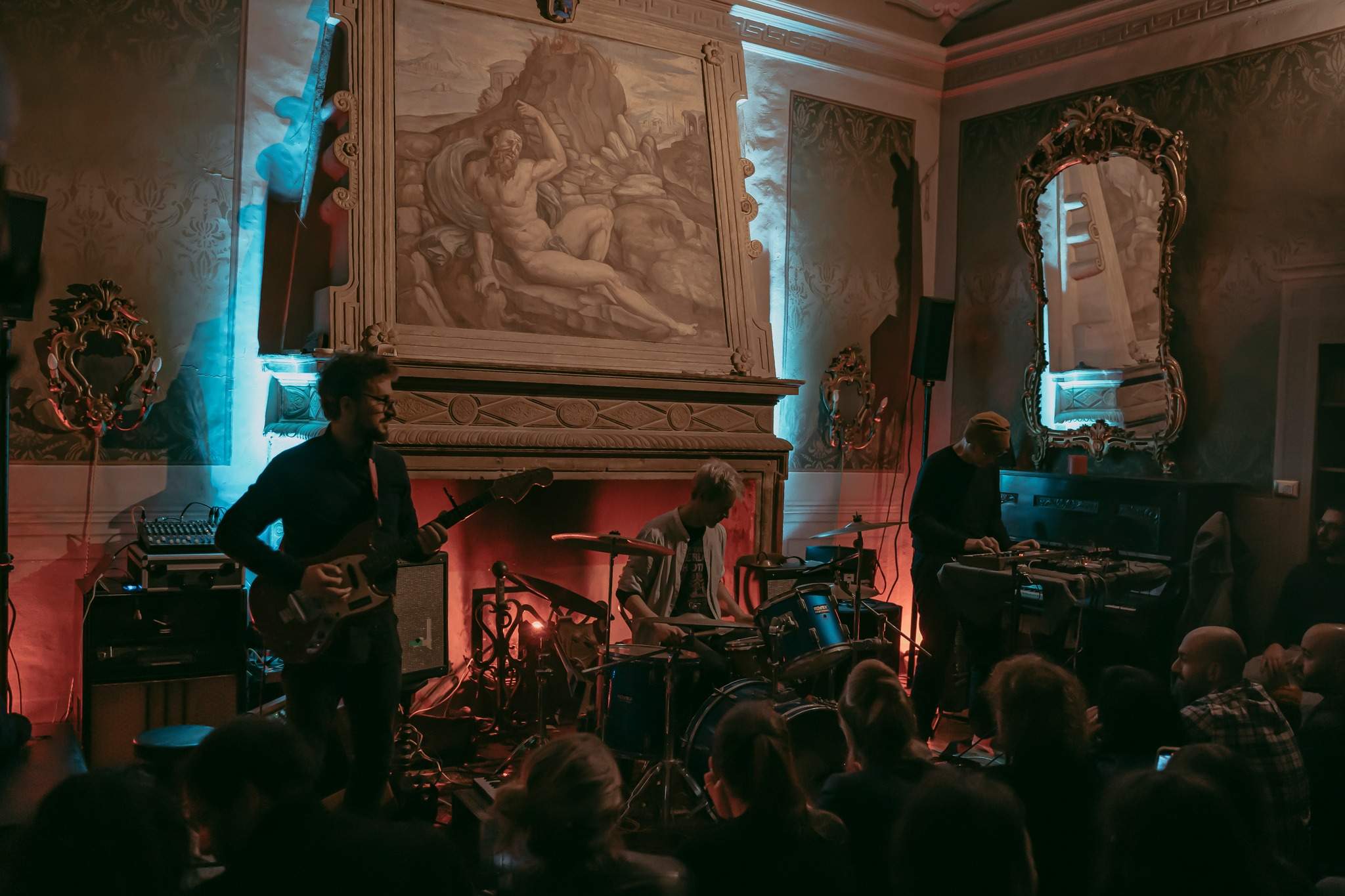The 1972 Sole Album from German Hard Rock Trio Reaction Gets Vinyl Reissue
German power trio Reaction’s explosive 1972 self-titled album is getting the definitive reissue it deserves.
Originally a Polydor release, this essential blast of proto-metal/early hard rock is being resurrected by Yunque Records. This definitive reissue package is a must-have, featuring an 8-page booklet packed with archival treasures: previously unseen photographs and the full, complete band story, exclusively penned by yours truly. Sure, you can read every fascinating detail in the full booklet, but we couldn’t wait to share a bit of Reaction’s history right now…
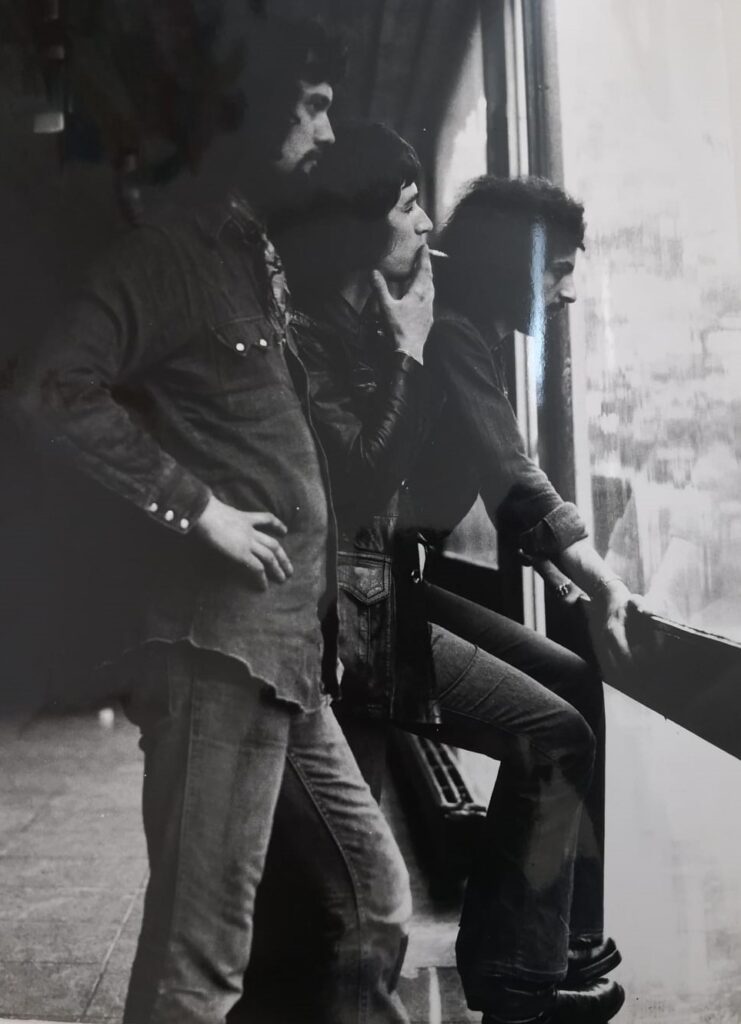
Let’s rewind to early 1970s Germany, a country still rippling from the aftershocks of the 1968 student revolution. While some bands used this cultural shift as a launchpad into the cosmos, diving headfirst into sprawling psychedelic experiments and proto-electronic voyages, others stayed closer to the ground. Grounded in sweat, grit, and distortion, they held fast to the foundational language of blues rock, infusing it with the electrified energy of their time. Among them was Reaction, a Hamburg-based power trio whose self-titled LP from 1972 has long been hidden in the shadows of more widely recognized acts. Though issued on a major label like Polydor, the record never quite gained the broader attention it deserved. Now, more than five decades later, Yunque Records dusts it off for a fresh airing. Make no mistake, this goes far beyond a simple curiosity because this is vital, blood-and-bone rock history.
Although Reaction officially formed in 1970, the band’s origins go back a few years earlier. An article published on December 1, 1967—likely in a regional paper such as the Winsener Anzeiger—documents the existence of a teenage beat band named Reaction performing at local dance evenings in Garstedt. At that time, the group included Holger Tempel (drums) and Peter Braun (guitar), who would later become founding members of the Reaction known today, alongside Uwe Peters (bass) and Jürgen Kock (vocals). These early shows, organized by the Evangelische Jugend and held in the parish halls and youth centers associated with the Christus-Kirchengemeinde, were part of a charitable effort to raise funds for the Aktion Wapniarka, a campaign supporting Holocaust survivor Mirjam Bremer and victims of a concentration camp.
It’s important to note that such performances weren’t typically held inside churches like the Christuskirche itself. Instead, these early gigs took place in adjacent community spaces, marking the group’s beginnings.
The band performed with a so-called “hippie look,” immersing themselves in the colorful spirit of the times and quickly becoming a local favorite. Though the lineup would change and the music would evolve, this early phase marked the beginning of Reaction’s story. It was a group of young musicians finding their voice in a changing Germany, blending youthful enthusiasm with the beat sound of the sixties and a sense of social consciousness. These formative years gave Holger and Peter their first taste of performing together, an experience that planted the seed for Reaction’s official formation just a few years later.
By spring 1970, the trio had crystallized into the lineup that would record their self-titled debut LP: guitarist and vocalist Peter Braun, bassist Luigi de Luca, and drummer Holger Tempel. The band’s roots in the primal force of British and American blues were clear, but their sound had naturally veered into harder, more aggressive terrain—a style their booking agent Jochen Florstedt would later brand as Power Rock. In truth, Reaction was navigating a uniquely German version of what British critics might have labeled heavy psych or blues rock. Local newspapers often referred to them as “Progressiv Rock,” but in early 1970s Germany, that term was less about complex time signatures and Mellotrons, and more about energy, new ideas, and breaking with the old guard.
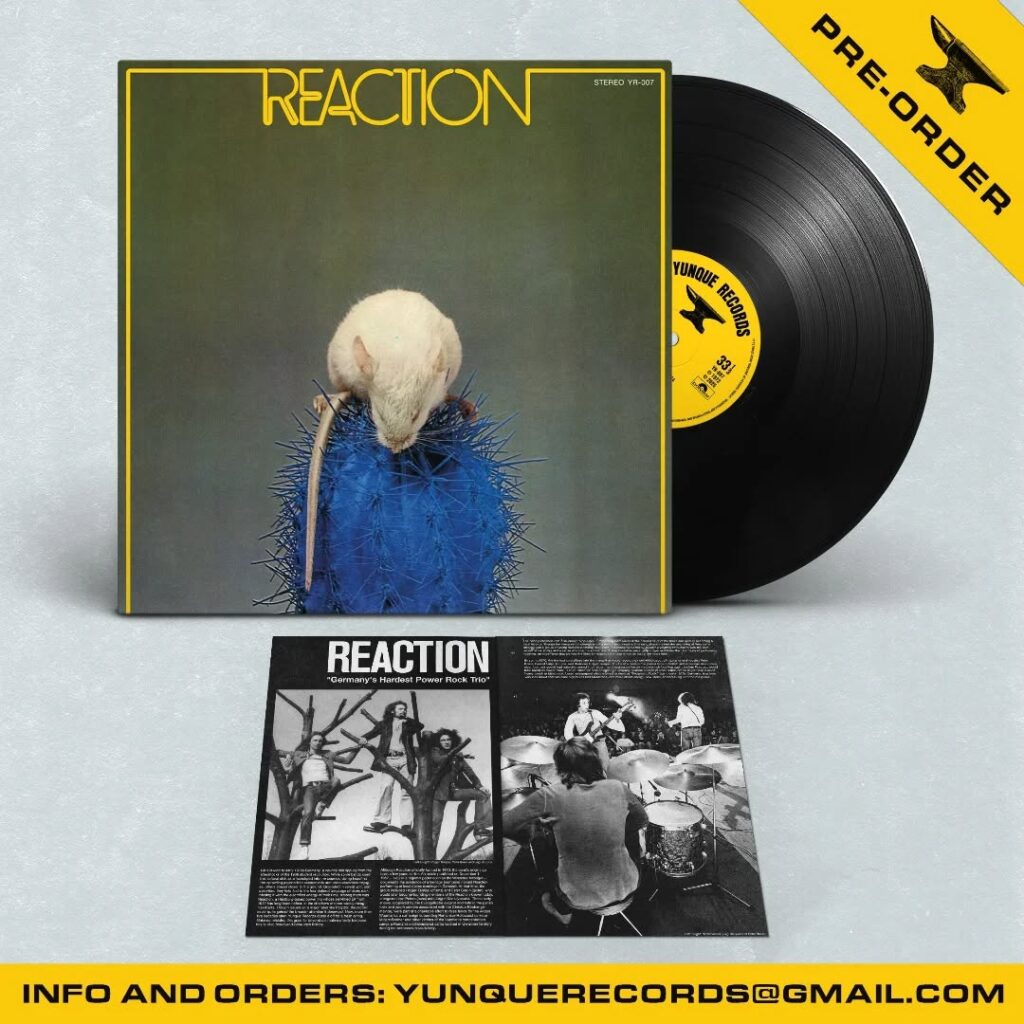
Reaction worked relentlessly, playing northern German clubs and discotheques, often in venues not traditionally geared toward rock music. Press clippings from the time document a growing buzz, highlighting not only their powerful live presence but also their youth and ambition. At the time of the LP’s release, Braun was just 20, de Luca 19, and Tempel 23. As one article dryly observed, “Long hair alone doesn’t bring big business yet.” Reaction was proof it took more than a look; it took sweat, chops, and conviction.
All that hard work paid off. By summer 1971, Polydor came calling. The band entered Studio Hamburg to lay down their debut LP. It was a proper affair, taking over a year to produce, showing they weren’t just about quick hits.
1972 was the year. The Reaction LP hit the streets, and it was a beast. Polydor pushed it hard, live and on the radio, but this was a record designed to blast out of speakers, not just fade into the background. Clocking in at just over 33 minutes, the album wastes no time. It’s a lean, no-filler shot of Hard Rock, Blues Rock, and Heavy Psych. Tracks like “Time” and “Funeral March of a Marionette” garnered press attention, and Jochen himself flagged “Live Is a Wheel” as an essential listen, and he wasn’t wrong. The album was their calling card, showcasing their dynamic backing and heavy guitar sound.
Peter Braun deserves particular recognition here, not only as frontman and guitarist but also as the creative and musical head of the band. He founded Reaction, wrote many of its songs including “Live Is a Wheel,” and even coined the name Reaction. It was his artistic drive that shaped the band’s identity from the very beginning. Later, he brought Luigi into his next venture, MAT, and many years afterward helped drummer Bernd Wieser secure a position there. Throughout it all, Peter remained loyal to his bandmates, always staying connected and supportive.
Soon after the album’s release in the summer of 1972, Holger Tempel left the band. But Reaction didn’t miss a beat. They recruited Jim Mould, a Brit from Stoke near Birmingham, adding a British element to the lineup. However, bureaucratic hurdles arose: by the end of 1972, Jim had to leave due to residence permit issues. By early 1973, the lineup settled with Peter Braun (guitar and vocals, born 1951), Luigi de Luca (bass, percussion, and electric piano, born 1952), and Bernd Wieser (drums and percussion, born 1949). The addition of percussion and electric piano to Luigi’s arsenal suggests a band that, despite their powerful sound, was constantly exploring new directions. Around this time, Jochen Florstedt coined their killer catchphrase and unique selling point: “Germany’s Hardest Power Rock Trio.” He invented it, and it stuck because it was true.
Reaction was a live band first and foremost. Before hitting the big stages, they packed out community halls and parish venues near places like the Christuskirche in Garstedt and Norderstedt. Imagine: “Progressiv Rock” shaking the foundations of a church hall! The headlines didn’t lie: “The walls will shake,” screamed one paper. Another raved, “That was never there before: Cool, hot, hard rock,” after a Norderstedt show that drew over 400 screaming fans. They were loud, unrestrained, and utterly captivating. Their reputation for heavy, intense energy was backed by serious gear: Jochen recalls their “superb stage system” featuring 600 watts of Hiwatt, Fender, Marshall, and Ludwig equipment, plus a gigantic light show. To haul all that sonic artillery, they had a dedicated 4-ton truck and two diligent roadies. Far beyond a garage band setup, their sound was a full-throttle assault designed to flatten venues and leave the crowd gasping.
One of their biggest moments came on March 1st and 2nd, 1974, at the legendary German Pop Meeting in the Gruga exhibition halls in Essen. Sharing the stage with Germany’s biggest bands of the era, including Atlantis, Birth Control, Karthago, and even the Scorpions, Reaction delivered a “superb” performance that boosted their fame and led to a flurry of gigs across Germany. But if you want to talk legend, you have to mention the “Skandal in Recklinghausen.” At the 7th German Blues Festival, Reaction was disqualified during a soundcheck for being too damn loud. The audience protested the decision, and the press noted the band “could not unfold their full sound” due to volume restrictions, showing just how wild and loud they really were.
Even after Reaction, the core kept rocking. Peter Braun and Luigi de Luca went on to form Aircraft ACT with Bernd Wieser and vocalist Frank Uwe Baumann, continuing their commitment to powerful, dynamic rock.
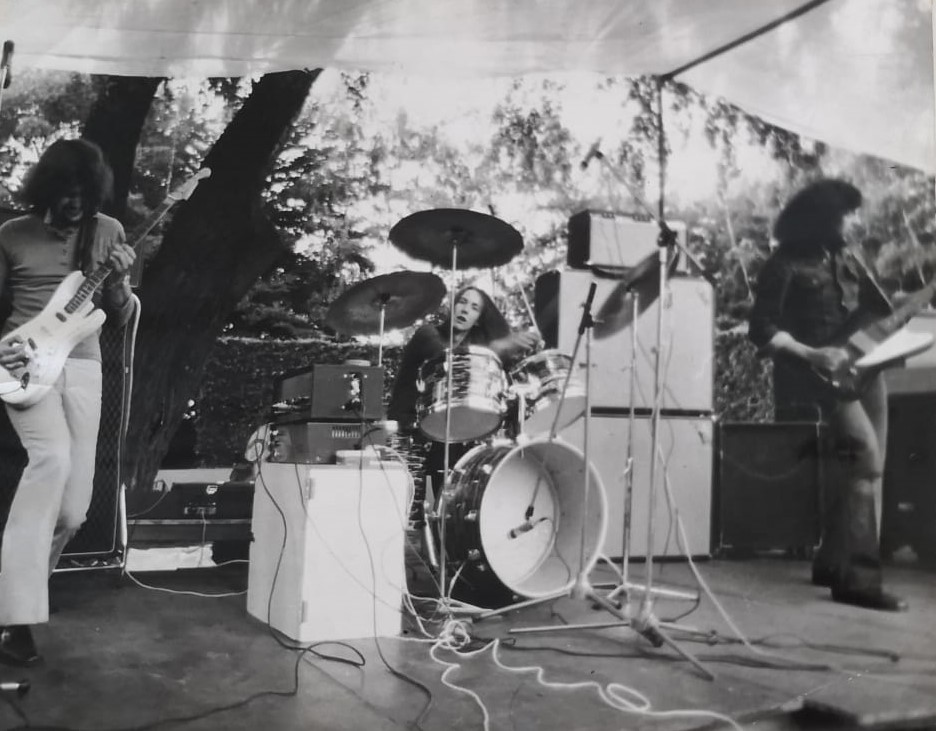
What you’ve got here is no mere relic. It’s a punch in the gut reminder of a band that didn’t give a damn about playing nice but was loud, rough, and real. This is the sound of three musicians giving you a piece of their soul. Sadly, Peter, Luigi, and Holger are no longer with us, so while we could not sit down for direct interviews, the information presented here represents the best we were able to compile. Our sincere thanks go to Peter Braun’s wife, Susanne Homann, for generously sharing invaluable news clippings, and to booking agent Jochen Florstedt for his firsthand accounts and memories, both instrumental in bringing this story to light.
Crank it up, let the walls shake, and experience Reaction.
Klemen Breznikar
Peter Braun, the band’s founder, guitarist, and frontman, passed away in May 2020. This reissue stands as a tribute to his vision, passion, and leadership at the heart of Reaction.
Headline photo: Reaction (April 1972) (Courtesy of band members & family.)

